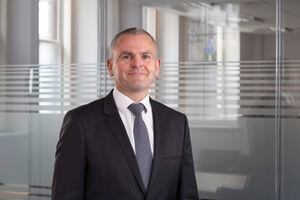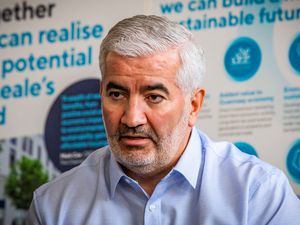10 Years On: Driving in the right direction
THE role of technology – How has it changed the world since 2008, has it changed the insurance industry and is more change on the way? In 2008, the technology industry was focused on the introduction of mobile technologies and updated computer operating systems – Apple introduced the App store and the iPhone 3, which sparked a mobile revolution, and the first Android mobile launched. Social media milestones included Facebook users surpassing MySpace users and President Obama running, and subsequently winning, a social media-driven campaign for the US presidency; Twitter was yet to become a mainstream platform. And no one was talking about Big Data or had even dreamt of how it could transform industry.

First Central Group launched in 2008 in Guernsey; we are now a leading insurance and technology group delivering market-leading insurance, underwriting, distribution, finance, technology and legal services. FCG’s motor insurance broker, 1ST Central, is firmly established as a top 10 supplier in the UK motor aggregator market and features prominently in the Insurance Times’ Top 50 brokers listings.
As well as being the location for our holding company, Guernsey is the base for our talented technology team, and that team is pivotal to FCG’s success. A number of years ago, the business decided to develop the software we use in-house and keep it all on-island. Putting technology at the heart of our business strategy is a trend we now see echoed across businesses in 2018.
The changing role of technology in business
IT departments are the backbone of the business digital infrastructure, playing an essential role in driving technological innovation and upkeep. However, IT departments have traditionally been viewed as separate to business strategy. A decade ago, IT systems were thought of as the cost of doing business in a digital world, today this has expanded well beyond those responsibilities.
FCG’s success to date has its heritage in several factors, many linked to technology. Our approach is to ensure our platforms are appropriate for our model, not adapting the model to fit the technology.
FCG was established to take advantage of the emerging aggregator market, using technology to analyse and process Big Data sets to find good risks in the enormous volumes of quotes this new channel created. At the time, much of the market rated in sectors or segments so by applying analytical techniques to those segments coupled with hundreds of additional factors collected externally we were able to spot the good risks others perceived as bad.
The noise around Big Data peaked a while back, but its effects have left an indelible mark on many industries. Big Data may have removed the concept of ‘niche’ insurance but this doesn’t equate to weaker or less tailored insurance deals. On the contrary, this large volume of data, which now inundates businesses on a day-to-day basis, represents an opportunity for insurers to set themselves apart from competitors.
We have developed an entire suite of software that we call ‘Focus’ and recently started rolling out ‘Focus Claims’, which is seen as another piece in this jigsaw. We are seeing an ever-increasing importance to get technology right and our strong development team will continue to help us to differentiate ourselves.
FCG’s technological journey doesn’t just concentrate on how we use it, but how it is being used – innovation and digital advances continue to create seismic changes in the automotive, tech and insurance sectors.
Technology is going to require motor insurance to completely change
The easiest way to explain this is to split it into the two key areas where technology is going to have a fundamental impact: vehicles and customers.
At the moment, the majority of the risk being assessed is related to the driver as opposed to the vehicle.
This will completely reverse in the era of autonomous vehicles.
Under the new UK Automated and Electric Vehicles Bill, which passed in July this year, in the event of an accident, when an insured automated vehicle is driving itself, insurers will be liable for damages. Insurers will also be initially liable for a new sort of risk – cyber risk in the event that a car is hacked.
If a car crashes in autonomous mode, the insurer can pass liability on to the car manufacturer who, in turn, can pass on liability to the software developer. This means the way you establish the correct premium to charge, and identify where liability ultimately resides, is going to change.
The other major evolution is customers. To consider the kind of service we need to deliver in 10 years’ time, we must start with the drivers of the future – who are currently seven years old. More tech savvy than the millennial generation, generation Z communicates more digitally than they do in real life – constantly on their smart phones, messaging, Whatsapping, Instagramming, Snapchatting, listening to music or taking pictures, but there is one function they never seem to use – the phone. It’s impossible to believe that this generation would ever ring a call centre in the event of an accident. That’s just not how this generation interact with the world and why we need to be thinking about the longer-term future.
If we are going to have a thriving business in 2028 we have two choices – either retain our existing product and hope that their behaviours change to ‘fit’ with what we have created, or design an entirely new proposition to ‘fit’ their behaviour – and that’s exactly what we plan to do.





